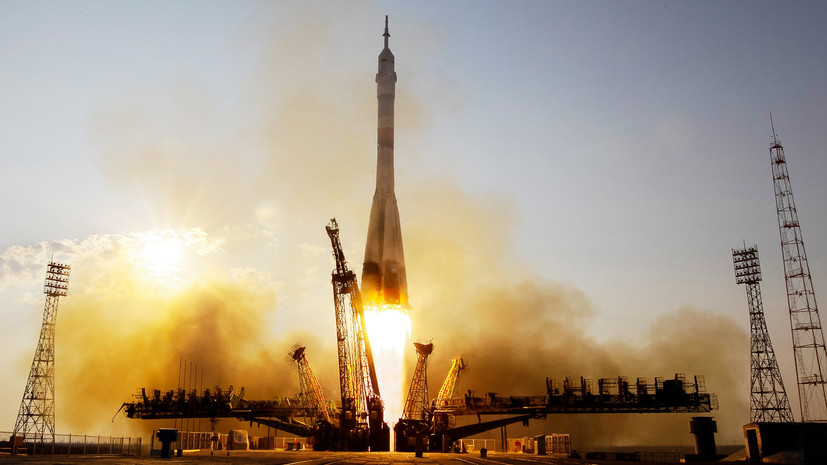Launched in the first half of July, the spacecraft of the Cosmos series are satellite-inspectors and satellite-recorders. This was reported in the press service of the Ministry of Defense of Russia.
According to the ministry, the flight tests of the Kosmos-2535 and Kosmos-2536 satellites are continuing, which are intended to study the impact on the Russian orbital constellation of "artificial and natural factors of outer space, as well as the development of technologies for their protection and orbital maintenance."
“The inspection of the state and orbital maintenance of the spacecraft registrar (spacecraft - spacecraft - RT ) using the spacecraft inspector, as well as the transmission of target and telemetry information about the status of the spacecraft registrar,” said the agency.
Along with this, the orbital parameters of these satellites were collected and processed, the operation modes checked, and the target equipment parameters evaluated.
“This equipment registers impacts on a spacecraft — a recorder of space debris, electron and proton radiation from the external natural radiation belt of the Earth, protons and heavy charged particles, solar and galactic cosmic rays,” the Ministry of Defense explained.
On July 10, at 20:14 Moscow time, the Soyuz-2.1V light-class carrier rocket with four space satellites (Kosmos-2535, Kosmos-2536, Kosmos-2537 and Kosmos-2537) was successfully launched from the Plesetsk cosmodrome. 2538 ”)
“The Soyuz-2.1V carrier rocket and the Volga block worked out in a regular manner. Start successful. Congratulations to the command of the space forces and the combat calculation of the Plesetsk cosmodrome with good work and task accomplishment! ”Commented the launch of the head of Roscosmos Dmitry Rogozin.
Then information about the Volga launch unit and four satellites was entered into the main catalog of space objects of the Russian space monitoring system, which contains coordinate and non-coordinate information about each space object.
Recall that in February, Russian President Vladimir Putin, in his message to the Federal Assembly, noted that for a revolution in the field of “communications, navigation, and the creation of remote sensing systems for the earth,” it was necessary to multiply the capabilities of the domestic satellite constellation. The head of state stressed that Russia has unique technologies in order to implement it.
"The creation of such satellites is a very promising thing."
Questions of inspecting objects that are in orbit is a very important task, said military expert, editor of the Arsenal of the Fatherland magazine, Alexei Leonkov. He stressed that from the ground, inspection systems only record the appearance of new spacecraft.
“When a satellite is in orbit, it can fail. Sometimes faults can be fixed from Earth by reloading the software. But sometimes you need some kind of intervention. For this, this kind of new satellites are being created. With sufficient maneuverability in orbit, he will be able to approach the satellites and conduct an inspection. If a certain kind of manipulators are installed on it, then it will be possible to make some repairs right in orbit. So, the creation of such satellites is a very promising thing. Projects of this kind were still in the days of the Soviet Union. Now the Ministry of Defense has managed to translate one of these objects, ”said the source RT.
According to the director of the Center for Strategic Conjuncture Ivan Konovalov, the use of such satellites becomes absolutely necessary, given the fact that the West has long and unequivocally hinted that space will become the new field of conflicts.
“Naturally, such satellites-inspectors to some extent protect our group and provide service. This is a necessary element of the successful functioning of the Russian satellite constellation in orbit. Further development, first of all, will be connected with the improvement of the Cosmos system. Today it is a necessity that helps to ensure the long-term and reliable operation of such orbital groups, ”said a military political analyst, head of the department of political science and sociology of the PRUE. G.V. Plekhanov Andrey Koshkin.

